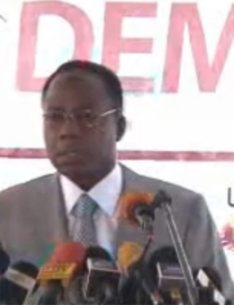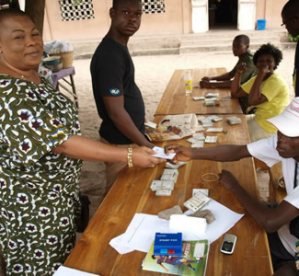|
Benin Politics Benin opposition denounces election fraud
According to Benin's electoral commission, President Boni Yayi managed to win Sunday's election win 55.8 percent of the vote. This was the first poll round in a presidential election delayed several times due to chaotic preparations, and it was widely expected that none of the 15 candidates would reach the 50 percent threshold to avoid a second poll round.
"Not surprising therefore, these results are fraudulent," Mr Houngbedji concludes, with reference to the declaration of President Boni Yayi as the outright winner of the elections. He insisted that no opposition representative had been caught in fraud; only persons connected to the ruling party. The opposition leader therefore insists that there must be a second poll round. Reports from many polling stations had indicated that Mr Houngbedji's Union of the Nation party had gained most votes, while later results announced y the electoral commission concluded on the opposite. Mr Houngbedji also hailed Beninese voters for a peaceful and orderly election, saying the opposition wanted to maintain this peaceful atmosphere in the country. He was now hoping for a reaction from Benin's Constitutional Court. Benin since the 1990s has been one of West Africa's best functioning democracies, with incumbent presidents accepting defeat and stepping aside twice since multi-party elections were introduced. This therefore represents the first major conflict over elections in Benin. The chaos started already in February, as the new electoral roll had excluded 1.4 million Beninese potential voters due to capacity problems. While President Boni Yayi insisted on the polls to be held as planned, the opposition insisted on a delay to give time to update the list. Only after an order from the Constitutional Court and recommendations from a joint ECOWAS-UN team did government agree to postpone the elections. Most of the missing 1.4 million voters were registered during this time, but some hundred thousands adult Beninese still are not included in the electoral roll. By staff writers © afrol News - Create an e-mail alert for Benin news - Create an e-mail alert for Politics news
On the Afrol News front page now
|
front page
| news
| countries
| archive
| currencies
| news alerts login
| about afrol News
| contact
| advertise
| español
©
afrol News.
Reproducing or buying afrol News' articles.
You can contact us at mail@afrol.com









